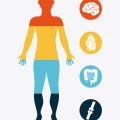1. Introduction: Why Protein Matters in Rehabilitation
Recovering from illness, injury, or surgery is a journey that requires patience, strength, and the right support. One of the most important building blocks for healing during this time is protein. Whether you are a patient on the mend or a carer providing day-to-day help, understanding the role of protein in rehabilitation can make a significant difference to recovery outcomes. In the UK, where we pride ourselves on compassionate care and evidence-based recommendations, knowing how much protein is needed—and why—is an essential part of supporting yourself or your loved one through rehabilitation. This article gently guides you through the importance of protein for rebuilding strength, repairing tissues, and promoting overall wellbeing throughout the recovery process.
2. Understanding Protein: The Building Blocks of Recovery
If you are beginning your rehabilitation journey, understanding the importance of protein is a wonderful place to start. Protein is often described as the body’s building block, and for good reason—it plays a vital role in repairing tissues, supporting muscle strength, and maintaining overall health, especially after illness or injury. When we eat protein-rich foods, our bodies break them down into smaller units called amino acids. Think of these amino acids as tiny helpers that travel through your bloodstream, ready to mend muscles, support your immune system, and help you regain strength.
For those unfamiliar with nutritional science, it might feel overwhelming at first. However, knowing where protein fits into your daily diet can be made simple. During rehabilitation, your body’s need for protein is usually higher than normal because it is working hard to repair itself. Without enough protein, recovery may be slower, and muscle loss can occur more easily—something we want to avoid.
To help clarify what protein does for you during recovery, here’s a straightforward table:
| Protein Function | Why It Matters During Rehabilitation |
|---|---|
| Tissue Repair | Heals wounds and rebuilds muscles after surgery or injury |
| Immune Support | Helps fight off infections when you’re vulnerable |
| Muscle Maintenance | Prevents muscle loss during periods of reduced activity |
| Energy Source | Provides extra fuel when the body is under stress |
If you are unsure how much protein you need each day or which foods to choose, don’t worry—later sections will explore UK-specific recommendations and offer gentle guidance on including more protein in your meals. For now, remember that every bite matters, and choosing a variety of protein sources—like lean meats, dairy products, beans, and nuts—can make a big difference in your rehabilitation journey.
![]()
3. UK Guidelines: How Much Protein Is Recommended?
When it comes to recovery and rehabilitation, the amount of protein you need can feel confusing. Thankfully, the NHS and British Dietetic Association (BDA) provide clear guidance to help you make sense of it all. For most adults in the UK, the general recommendation is about 0.75 grams of protein per kilogram of body weight each day. That’s roughly 50 to 60 grams daily for the average adult – or in everyday terms, about two palm-sized portions of meat, fish, eggs, dairy, or plant-based alternatives spread throughout your meals.
However, if you’re recovering from illness, surgery, or injury, your needs may be a bit higher. The BDA suggests aiming for around 1.0 to 1.5 grams of protein per kilogram of body weight during rehabilitation. So, for someone who weighs 70kg (about 11 stone), that’s between 70 and 105 grams per day. To put this into perspective, that could mean including a portion of Greek yoghurt at breakfast, a chicken breast or lentil salad at lunch, and a piece of fish or tofu at tea time. Snacking on cheese, nuts, or even a milky drink can also help boost your intake.
It’s important to remember that everyone is different – your age, activity levels, and health condition all play a part in determining your specific needs. If you’re unsure how much protein is right for you, especially during rehabilitation, it’s always best to ask your GP or a registered dietitian for tailored advice. They’ll be able to guide you towards choices that fit both your recovery goals and your usual way of eating here in the UK.
4. Special Considerations: Age, Illness, and Individual Needs
When it comes to rehabilitation, there’s no “one size fits all” approach—especially with protein intake. It’s important to gently recognise that our nutritional needs can shift quite significantly depending on our age, health status, and the type of recovery we are undergoing. Here, we’ll explore how these factors influence protein requirements and why thoughtful adjustments may be needed for different individuals.
Older Adults: Supporting Muscle and Strength
As we age, maintaining muscle mass and strength becomes increasingly challenging—a natural part of the ageing process known as sarcopenia. Older adults in the UK often benefit from a slightly higher protein intake during rehabilitation to help preserve muscle tissue and support healing. According to current UK guidance, older adults may need up to 1.2 grams of protein per kilogram of body weight daily during recovery (compared to the standard 0.75g/kg for healthy adults). This helps counteract age-related muscle loss and supports mobility and independence.
People Living with Chronic Illness
For those living with chronic illnesses such as kidney disease, diabetes, or cancer, protein needs can become more complex. The right balance is key—some conditions require moderation to avoid placing extra strain on the body, while others might call for increased intake to prevent malnutrition or support immune function. Collaborating with healthcare professionals like dietitians is vital in these cases. Below is a simplified comparison:
| Condition | Possible Protein Requirement | Special Notes |
|---|---|---|
| Chronic Kidney Disease (not on dialysis) | 0.6-0.8g/kg | Avoid excess; individualised advice essential |
| Cancer Recovery | 1.0-1.5g/kg | Higher needs if experiencing weight loss |
| Diabetes (with stable kidneys) | 0.75-1.0g/kg | Monitor blood sugar alongside protein intake |
After Surgery or Injury: The Body’s Healing Demands
Recovery after surgery or injury is a time when the body’s need for protein naturally increases. Protein plays a crucial role in repairing tissues, promoting wound healing, and rebuilding lost muscle mass. For most adults in the UK recovering from surgery or significant injury, daily intake may rise to 1.2–2.0g/kg depending on the severity and type of trauma.
Personalising Protein Intake: Kindness and Individual Needs Matter Most
No matter your situation, it’s always wise to seek gentle guidance from registered dietitians or healthcare professionals who understand your personal circumstances and preferences. They can help tailor recommendations so you feel supported—not overwhelmed—on your road to recovery.
5. Practical Ways to Meet Your Protein Needs
Finding approachable and effective ways to boost your protein intake during rehabilitation is entirely achievable, especially when you tailor your choices to British tastes and lifestyles. Here are some gentle, practical suggestions to help you meet the UK’s protein recommendations, whether you’re a meat-eater, vegetarian, or looking for budget-friendly options.
Make the Most of Traditional British Meals
Familiar dishes like beans on toast or jacket potatoes with tuna can be excellent sources of protein. Consider adding baked beans (which count as one of your five-a-day) or topping wholemeal toast with scrambled eggs for an easy protein boost. For main meals, classic roast dinners featuring lean meats such as chicken or turkey breast are both traditional and nutritious.
Vegetarian-Friendly Protein Choices
If you follow a vegetarian diet or simply want to eat less meat, British supermarkets offer a wealth of plant-based options. Try lentil shepherd’s pie, Quorn mince in a cottage pie, or chickpea curry served with brown rice. Including dairy products like low-fat yoghurt and reduced-fat cheese also helps meet your protein needs while supporting bone health.
Smart Snacking Ideas
Snack time is another opportunity to increase your daily protein intake. Opt for handfuls of unsalted nuts, slices of cheddar with oatcakes, hard-boiled eggs, or pots of Greek-style yoghurt. These snacks are simple to prepare and easy to incorporate into any routine.
Budget-Conscious Protein Solutions
You don’t need to spend a lot to eat well. Tinned fish (such as sardines or mackerel), pulses (like kidney beans and chickpeas), and eggs are all affordable sources of high-quality protein available at most UK shops. Batch-cooking hearty soups or stews using these ingredients can make healthy eating more manageable throughout the week.
A Gentle Reminder
If you have dietary restrictions, allergies, or specific health concerns, consider consulting with a registered dietitian or your healthcare team. They can provide tailored advice that ensures your nutritional needs are met safely and comfortably during rehabilitation.
6. Gently Navigating Common Challenges
Rehabilitation can be a journey filled with its own unique set of hurdles, especially when it comes to meeting your protein needs. It’s perfectly normal to experience obstacles such as a reduced appetite, difficulty chewing, or certain dietary restrictions during recovery. Here are some gentle, supportive suggestions tailored to the UK context that can help you or your loved one stay nourished and on track.
Addressing Appetite Loss
If you’re struggling with a poor appetite, try eating smaller portions more frequently throughout the day rather than three large meals. Opt for nutrient-dense snacks like Greek yoghurt, cheese cubes, or nut butters on oatcakes. Little and often is often easier to manage, and every bite counts towards your recovery goals.
Managing Chewing Difficulties
For those who find chewing challenging, soft or pureed foods can be both comforting and nourishing. Scrambled eggs, mashed beans, flaked fish in a light sauce, or well-cooked lentils are all good sources of protein that are gentle on the mouth. You could also blend soups with pulses or add powdered milk to porridge for an extra protein boost without adding bulk.
Navigating Dietary Restrictions
If you have specific dietary requirements—whether vegetarian, vegan, gluten-free, or dairy-free—there are still plenty of ways to meet your protein needs. Plant-based options such as tofu, tempeh, quinoa, and pulses are widely available in UK supermarkets and can easily be incorporated into familiar dishes like cottage pie or shepherd’s pie using plant-based mince.
Enlisting Support from Professionals
Don’t hesitate to ask your GP or a registered dietitian for advice tailored specifically to your situation. The NHS also offers resources on nutrition during recovery which reflect up-to-date UK guidance. Sometimes small adjustments recommended by professionals can make all the difference in helping you meet your protein targets comfortably.
A Gentle Word of Encouragement
Remember: progress may not always be linear, and every effort you make is valuable. Be patient with yourself or your loved one as you adjust to new routines and tastes. With gentle persistence and the right support, maintaining adequate protein intake during rehabilitation is entirely achievable—and each step brings you closer to feeling stronger every day.


